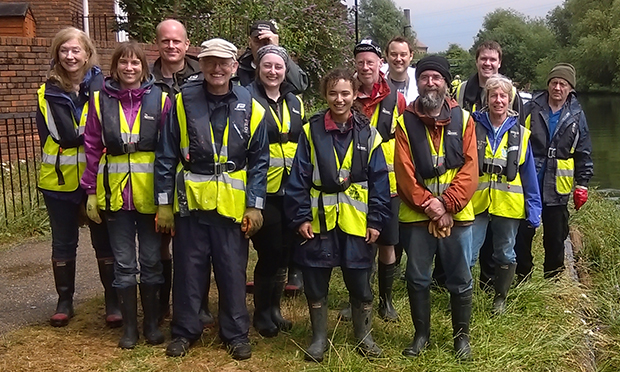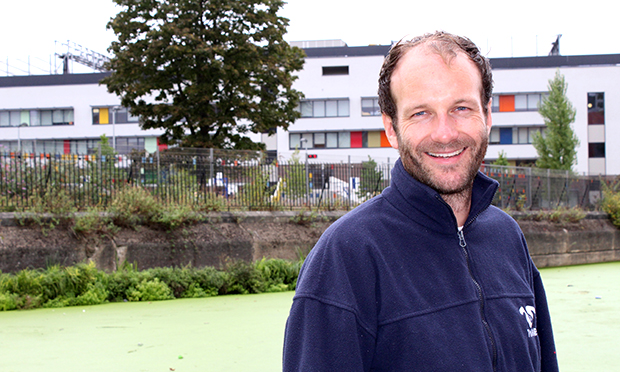Charity’s River Lea reedbed drive hits 1000-metre landmark

Notch on the bed post: volunteers have now planted a kilometre of reedbeds. Photograph: Thames 21
Waterways charity Thames 21 is celebrating after planting 1000 metres of new reedbeds along the River Lea.
Volunteers helped install another 250 metres of the wildlife-friendly reeds over the summer, taking the charity’s total to a kilometre.
The drive is part of Thames21’s ‘Love the Lea’ programme, which aims to create new habitats for local creatures, such as spawning ground for fish, as well as improving the river’s water quality.
Hackney’s two most recent reedbeds can be found at Mabley Green in Homerton and Clapton’s Riverside Close.
The sites were chosen by the public in an online poll earlier this year.
Local resident Lorna Reith said: “I can see one of the new reedbeds from my balcony. It’s doing really well and is a constant reminder of the value of involving local residents in improving the water quality and general environment of our river.
“From voting on preferred locations to getting wet and muddy during installation, residents have been key to making this project a success.”

Avid reeder: Ben Fenton manages Thames21’s reedbed project.
Thames 21’s Ben Fenton, who runs the ‘Love the Lea’ project, said: “We’re delighted that people have shown such enthusiasm for reedbeds, through voting and volunteering to help.
“We’re now offering free training on September 27, to give people the chance to learn the benefits of these plants and how to look after them in the future.”
Lea Valley Park’s conservation manager Cath Patrick said the reedbeds will have a “positive impact”: “Not only will they provide new habitats for a range of wildlife and help tackle water pollution, they really improve the visual appearance of the area, softening the otherwise hard bank.
“Another key success of the project is the community involvement at all stages, from choosing the locations, installing the reedbeds and their long-term maintenance. It’s a great example of local community action to benefit all users – wildlife and people alike!”
You can find out more about Thames 21’s work by visiting the charity’s website here.
